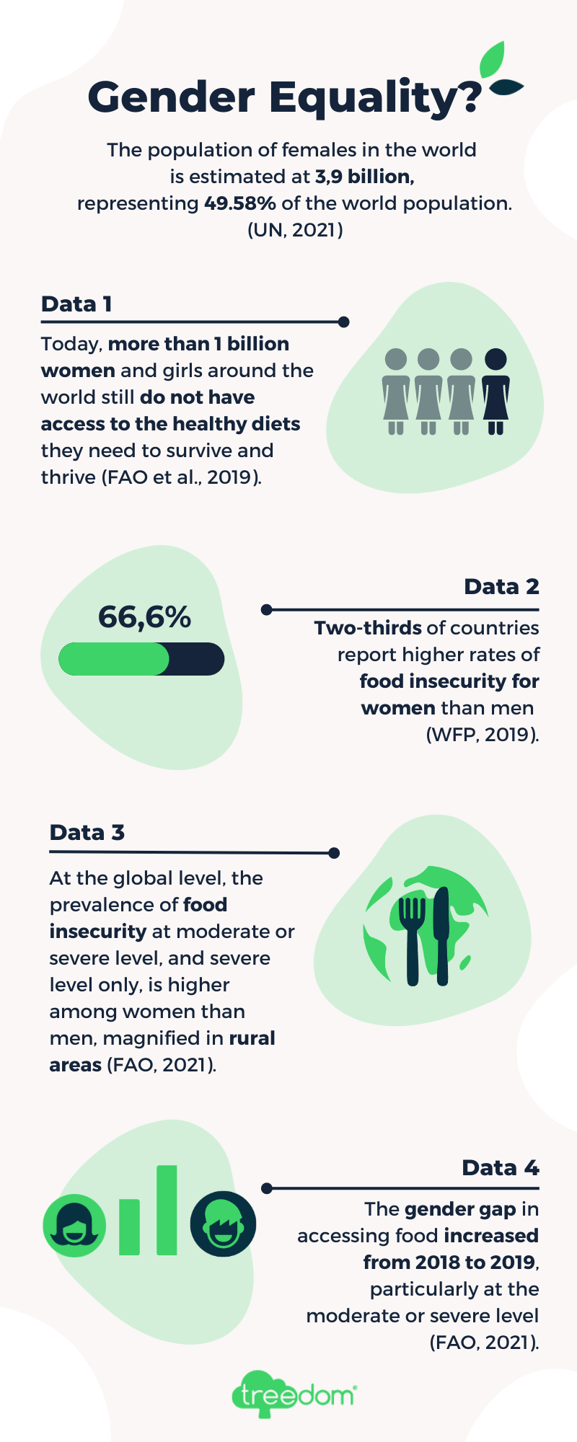According to the FAO, 80% of the world's poorest people live in rural areas and in developing countries agriculture is the main occupation of women, who represent 45% of the agricultural workforce: from 20% in Latin America to almost 50% in East and South-East Asia and sub-Saharan Africa, with over 60% in some countries, such as Lesotho, Mozambique or Sierra Leone.
Given their commitment to agriculture, it is incredible to think that they are the ones most at risk of food shortages.
Is this acceptable? No. Is this sustainable? No. Is it possible to change it in a short time? No.
But it is impossible to change it if we don't start now.
Our projects are increasingly aimed at supporting true gender equality and over the years we have told this through a series of testimonies that we now collect in a series of links full of data, analysis, reading recommendations and also stories of how what we do is built to bring about change.
You can find lots of useful reading here:
. The role of women in agriculture in developing countries
. International Women's Day 2021: Our projects in Guatemala
. On El Pais a reportage on Treedom in Guatemala
. There's no (sustainable) tomorrow without gender equality: interview with Ann Degrande
. Roots of Words: women and nature
. Female Scientists changing Africa
Not just that, but in this video we collected the testimonies of three women involved in our projects, so that they can tell us about their commitment and the opportunities it generates for them and for the communities to which they belong.
Finally, a document that summarises, in a few official figures, the global injustice that goes by the name of "gender inequality".
Change is possible, but it takes time. That is why it is better to start now.
Because a greener planet, is also a fairer planet.
